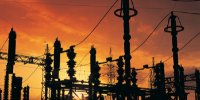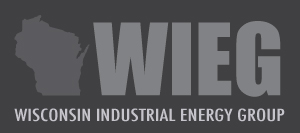
WIEG represents 25 Wisconsin businesses that serve as key drivers of economic growth and development throughout the state.
The Wisconsin Industrial Energy Group (WIEG) is a nonprofit consumer advocacy trade association that advocates for affordable and reliable energy. WIEG represents many of Wisconsin’s largest employers who, together, employ more than 35,000 Wisconsin residents, who are both state taxpayers and utility customers. WIEG members represent most major Wisconsin manufacturing industries including paper, printing, malting, automobile, food processing, chemical, metal casting, and fabricating. Many of these companies have electric bills of over $1 million each month, and it is one of their top costs of doing business.
Our companies when combined together spend over $500 million in electric bills every year. For perspective, the amount of electricity our member companies consume each year equals or exceeds the entire industrial customer base of either WPSC or WPL, and their usage totals nearly as much as all of WEPCO’s industrial electricity sales (all of the Cp class customers).
 WIEG’s primary focus is to advocate for reliable and cost effective gas and electric service for Wisconsin energy consumers. Since the 1970s, WIEG has intervened on behalf of its members in many regulatory and legal settings, including the Public Service Commission of Wisconsin,
WIEG’s primary focus is to advocate for reliable and cost effective gas and electric service for Wisconsin energy consumers. Since the 1970s, WIEG has intervened on behalf of its members in many regulatory and legal settings, including the Public Service Commission of Wisconsin,
Wisconsin’s Executive Branch State Agencies, State Legislature, Midcontinent Independent System Operator (MISO), the Federal Energy Regulatory Commission (FERC), and in state and federal courts.
Power is a major cost of doing business, and its affordability can help or hinder job creation. High energy costs directly impact the bottom line of industrial customers because in many cases, these costs cannot be passed to downstream customers due to highly competitive business conditions. When our factories become uncompetitive and shift production out of Wisconsin, the “mom & pop” small businesses and the low income residential ratepayers are harmed.
WIEG member companies are recognized leaders in sustainability and energy efficiency. We are proud to represent the first foundry and the first steel mill in the country to achieve ISO 50001 certification in energy management.
WIEG’s efforts in the drafting of legislation and administrative rules, and its participation in utility construction cases, base rate cases and fuel cases, has resulted in very substantial energy cost savings for member companies. In the last thirteen years, investor-owned utility rate hike requests have been reduced by 40% or roughly $1.4 billion.
Mission Statement
Wisconsin Industrial Energy Group strives to educate and influence legislators and regulators so that cost effective, efficient and properly allocated energy decisions keep Wisconsin competitive to retain and expand jobs.
Strategy Statement
- Educate all members on the details of energy issues, then encourage and provide support for their individual efforts to share their concerns with utility, regulatory and legislative personnel.
- Participate directly in regulatory and legislative proceedings and other energy-associated forums.
- Expand influence through joint participation with other stakeholders.
Statement of Critical Objectives
- The Wisconsin energy regulatory process must be responsive, efficient, transparent and result in cost-based rates.
- Promote economic development and preserve and enhance the existing industrial base in Wisconsin.
- Ensures stakeholders make informed decisions on energy issues.
 Major Public Policy Agenda Items 2024
Major Public Policy Agenda Items 2024
- Adopting fair cost allocation & rate design for industrial customers.
- Mitigating the cost of stranded assets as more fossil fuel units are retired and new generation is under construction.
- Intervening in several MISO initiatives regarding transmission costs and cost allocations.
- Developing innovative rate options such as market-based rates, renewable tariffs and demand response.
- Supporting energy efficiency & renewable programs that get the most “bang for the buck” with cost containment or opt-out language for large customers.

